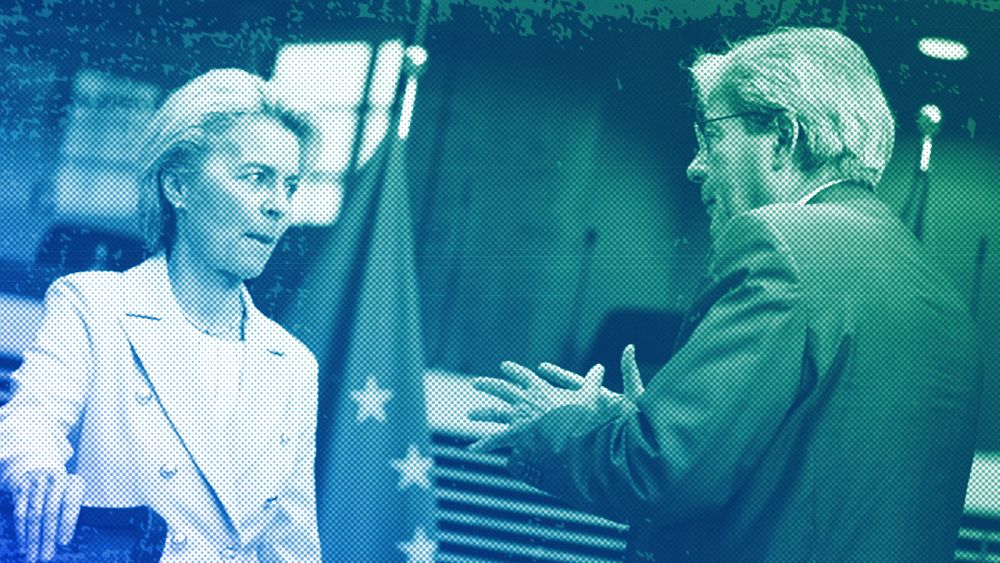General News
Businesses are right to worry about the EU’s new climate tax mechanism

The opinions expressed in this article are those of the author and do not represent in any way the editorial position of Euronews.
With CBAM now preliminarily in force, a careful look at the adverse economic effects already at play reveals businesses do have a need to fear, while its methodology is in need of re-evaluation, Sean Bray writes.
On 1 October, the European Union became the first to adopt the Carbon Border Adjustment Mechanism (CBAM), a novel tax design intended to fight climate change by curbing the production of environmentally harmful carbon-intensive products outside of its borders.
EU Commissioner for Economy Paolo Gentiloni, making a case for the CBAM, told non-European companies there is no need to fear CBAM because the fight against climate change is a just cause.
With CBAM now preliminarily in force, a careful look at the adverse economic effects already at play reveals the opposite.
Businesses do have a need to fear, and CBAM’s methodology is in need of re-evaluation.
What are the impacts of CBAM’s requirements?
Because the EU is the first in the world to attempt to implement a carbon border adjustment, policymakers are ironing out implementation details day by day.
This makes firms doing business with the EU (domestic and non-European alike) rationally worried about CBAM’s unknown administrative and economic impacts.
For example, the EU only adopted the detailed reporting rules — which firms will have to use to calculate their embedded emissions or face a fine of €50 per tonne of emissions — 45 days before the 1 October implementation period began.
This does not give firms much time to react, especially given the fact that templates of reporting documents reportedly include forms with 10 sections to fill in for each importer.
It’s no wonder that 60% of the 700 companies surveyed by Deloitte and 84% of manufacturers surveyed by the British Chambers of Commerce are not familiar with CBAM’s requirements.
The European Commission also estimates that CBAM will cost firms €27 million a year to administer, presumably because of the paperwork required and changes to contracts and procedures. There is no denying the cost of compliance will be felt heavily across the industry.
Question marks arise over international rules compliance
Economically, experts predict that electricity prices will be higher in many European countries than those in countries outside of the EU over the long term.
As free allowances under the EU’s Emissions Trading System begin to phase out and increase European production costs, the lack of export rebates for European producers puts firms in a difficult and uncertain position.
Interestingly, German politicians are also fearful and are looking for ways to subsidise domestic industries to stay competitive.
Furthermore, there is real uncertainty about CBAM’s legal standing under World Trade Organization (WTO) rules, despite the recent bold reassurances from Commissioner Gentiloni, that could trigger retaliatory trade measures and catch firms in the middle.
In March, China filed a request with the WTO asking the EU to submit justification defending CBAM’s legality — a first step before an expected formal objection.
It is also unclear from the legislation how equivalency will be determined. CBAM lays out a technical process to determine what carbon prices in third countries should count towards a CBAM payment.
However, the determination of equivalency, and therefore exemption from CBAM, will likely be a political process.
These political negotiations between governments will be messy. This, rationally, leaves firms with the fear of having to pay twice.
Reassurances are not helping
While these unknown administrative and economic impacts are worrisome, they are in addition to the pressure CBAM is designed to generate.
The overarching fear on which the success of CBAM rests is the negative effects of climate change, “to encourage cleaner industrial production in non-EU countries.”
This type of rhetoric is a common justification for environmental-related government actions, regardless of a given policy’s effectiveness at reducing overall negative impacts.
In the case of CBAM, it is worth evaluating whether the underlying assumptions behind this policy — that it is the extra cost of Europe’s carbon price deterring production and not the externalities imposed by the entire tax structure — are even accurate.
It is misleading at best to try and reassure those non-European firms that there is nothing to fear about CBAM. If that were true, it would significantly undermine a core design feature of the policy.
Even if European policymakers have intentions of using CBAM to fight climate change, the core tenant of the policy is to encourage fear — and impacted firms have a right to be afraid.
Sean Bray is Director of European Policy at the Tax Foundation, a nonpartisan think tank in Washington DC.
At Euronews, we believe all views matter. Contact us at view@euronews.com to send pitches or submissions and be part of the conversation.
Source
No copyright infringement intended. All rights and credits reserved to respective owner(s).
























